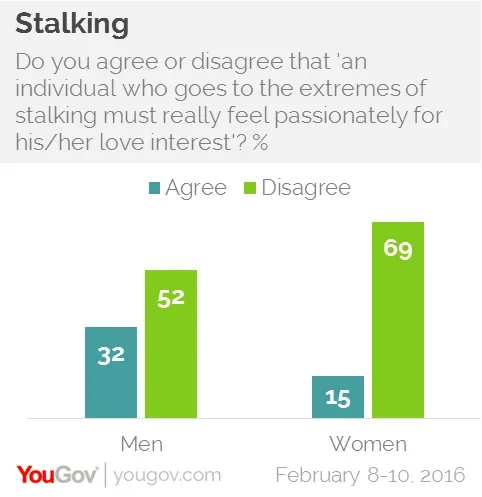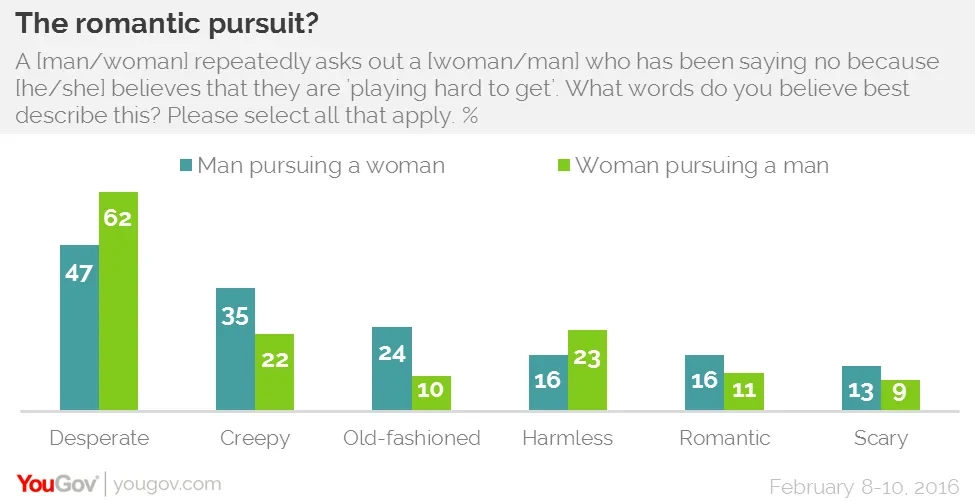Attitudes to stalking vary somewhat by gender, but repeatedly asking someone out is widely seen as desperate even though many admit having done it themselves

Researchers estimate that up to 8% of American women and 2% of American men will be victims of stalking at some point in their lives. Despite this, celebrity stalking receives the most attention and in fact the first laws against stalking passed in the 1990s were in response to celebrity stalkers.
YouGov's latest research shows that most Americans (61%) recognize that stalking isn't just a manifestation of passionate love. Nearly a third of men (32%), however, do say that a stalker must feel passionately for the person they are stalking. Only 15% of women agree.
A step down from stalking, which generally means someone is tracking the movements and activities of someone in a way which harrasses them, is the continued pursuit of a desired romantic partner. This is perhaps easier to understand, as 42% of Americans - including 46% of women - admit that they have 'played hard to get' at some point in their lives. 55% of men, and 40% of women, say that they have kept on trying when they thought someone else was playing hard to get.
Despite this widespread admission, the most common description people choose for someone who has kept on trying to ask someone out is 'desperate'. Americans are slightly more likely to call a woman (62%) doing this desperate than a man (47%). Men more likely to be called creepy (35% to 22%) or old-fashioned (24% to 10%).

There is a gender divide on some of these responses. Women (18%) are more than twice as likely as men (7%) to say that a man repeatedly asking a woman out is 'scary'. Women (75%) are also much more likely than men (47%) to describe a woman repeatedly askin a man out as 'desperate'.
Full poll results can be found here and topline results and margin of error here.








